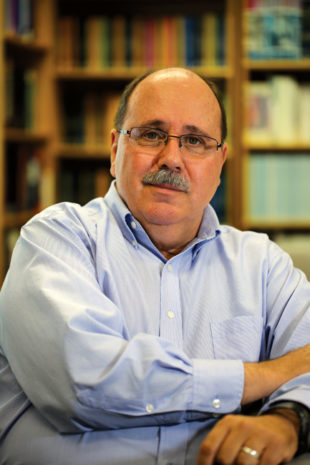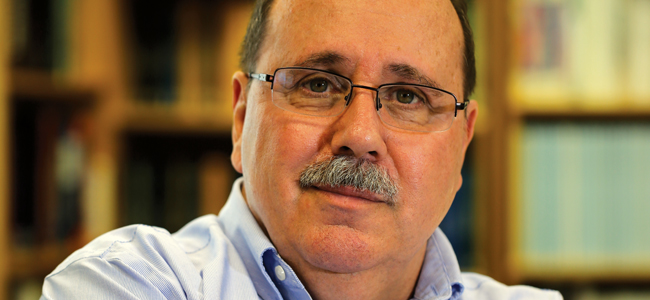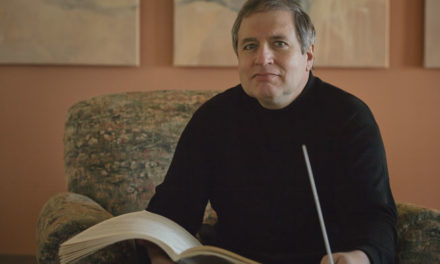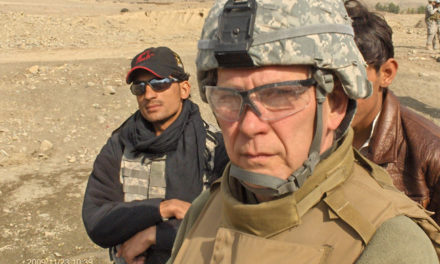
Charles Reafsnyder. Photo by Jim Krause
BY ELISABETH ANDREWS
Charles Reafsnyder officially retired from Indiana University this year, but the Ebola crisis in Liberia brought him straight back to work. As associate vice president for international research and development, Reafsnyder, 66, spearheaded IU’s involvement in building a Center for Excellence in Health and Life Sciences at the University of Liberia, the most recent in a 30-year series of higher education development projects reaching from Angola to Indonesia to Azerbaijan. When the deadly hemorrhagic fever hit the small West African nation of Liberia in March, it not only closed the university and its new center but also brought the country’s under-resourced health care system to a standstill.
“The biggest problem was the lack of protective gear for the health care workers,” Reafsnyder explains. “They had completely run through their supplies of latex gloves, protective suits, and even disinfectant. Aid organizations had been sending shipments, but the crisis was on such a scale that they ran through the new supplies in a matter of days.”
Without the means to prevent medical staff and patients from contracting the virus, much of the Liberian health care system had shut down entirely, creating an escalating health emergency that went beyond the reported Ebola death toll of some 700 people and counting, Reafsnyder says. His goal in returning to IU after retiring was to help the University of Liberia prepare to strengthen the country’s health infrastructure in the aftermath of the outbreak.
“When this epidemic is finally under control, there will be an enormous need to rebuild the health care workforce,” he says. “We’re putting together a plan for training health professionals in Liberia that includes everything from strengthening the undergraduate science curriculum, which is the pipeline into the health fields, to getting the numbers of faculty members up to a point that can support full enrollment.”
Reafsnyder’s previous projects have included sending several groups of IU faculty members to teach in Malaysia and helping initiate the South East European University in Macedonia, which now enrolls more than 7,000 students. While Reafsnyder is looking ahead — to Liberia’s stabilization and to returning to retirement and more time with his two school-age sons — he also is actively involved in addressing the medical equipment shortage. Apart from his IU responsibilities, he is using his personal time to organize a fundraiser for protective equipment for Liberian health care workers.
“IU has been involved with Liberia for a long time, and many people in Bloomington have personal connections there and want to help address this horrific situation,” he says. To contribute, visit his CrowdRise page.











